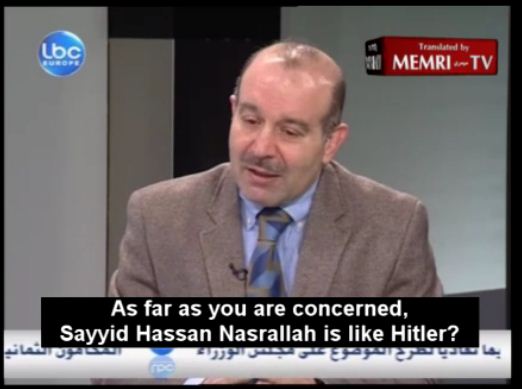
Future Movement politburo member and former MP Mustafa Alloush has warned that any “parliamentary vacuum” may lead to a constituent assembly which will lead to the legalization of Hezbollah’s controversial arms
“Vacuum in the legislative authority has never happened throughout Lebanon’s modern history, and should it happen this time, it would mean heading to a constituent assembly which we have been trying to avoid. Everyone would then lose, because change would affect the entire political structure in Lebanon,” Alloush told the Saudi daily Asharq al-Awsat in remarks published Sunday.
“The first thing that Hezbollah will demand from the constituent assembly will be the legalization of its arms and its relation with Iran that is bypassing the state and its institutions,” the former lawmaker warned.
He noted that failure to agree on a new electoral law puts the country before two possibilities: “holding the elections under the current law or a ‘non-technical’ extension of the parliament’s term.”
“A political crisis is inevitable because all the forces have escalated their stance and voiced existential slogans,” Alloush added.
“The president has openly announced that his presidential term would be considered a failure should the elections be held under the current 1960 law, and the prime minister has noted that failure to pass an electoral law would indicate that the government has failed ,” Alloush said.
Aoun’s ally , the Iranian backed Hezbollah has repeatedly called for an electoral law fully based on proportional representation but other political parties, especially the Future Movement, have rejected the proposal and argued that the party’s controversial arsenal of arms would prevent serious competition in regions where the Iran-backed party has clout.In 2013 Lebanese Forces and The Future Movement backed by the PSP agreed on a hybrid electoral law which calls for 54% of the MPs to be elected under the majoritarian winner-takes-all system and 46 % under the proportional representation system. This draft law was rejected by the Hezbollah-led March 8 opposition.
Also in 2013 Future Movement leader PM Saad Hariri rejected the electoral law that is based on proportional representation because there will be competition in some regions, but there cannot be any competition in other regions, because of the presence of Hezbollah weapons in them.
Hariri was referring to the 2009 election in the areas dominated by Hezbollah. According to the reports that surfaced back then Hezbollah gunmen prevented their rivals from voting and the results of the election showed it. On the other hand in the March 14 dominated areas several Hezbollah backed candidates won the election that was based on winner take all . In a proportional representation system Hezbollah will be able to gain more seats in the March 14 dominated areas but will not lose any seats in its dominated areas as long as it is allowed to keep its arms and use them internally for political gain .
According to analysts Hezbollah is trying to use Aoun to dominate Lebanon by insisting on adopting the proportional law in a single or several expanded electoral districts.
The country has not voted for a parliament since 2009, with the legislature instead twice extending its own mandate.
The 2009 polls were held under an amended version of the 1960 electoral law and the next elections are scheduled for May 2017.
Constituent Assembly
There are rising concerns in Lebanon that if current situation leads to a parliamentary vacuum there will be no choice but to demand a constituent assembly to change the country’s constitution and its political system.
MP Talal Arslan, head of the Lebanese Democratic Party — which is very closely tied to Damascus and Hezbollah — called for a constituent assembly last September.
“Lebanon is on the brink of catastrophe,” he said at a news conference. He added that a constituent assembly to change a system of rule that was agreed by the 1989 Taif agreement that ended Lebanon’s civil war was the only way to return things to normal in the country.
Hezbollah chief Hassan Nasrallah called for a constituent assembly in June 2012 to build a “real state”, as he put it. This is something that March 14 views as an attempt by Hezbollah to impose a Sunni-Shia-Christian status quo on the Lebanese political system, rather than the Christian- Muslim parity that is enshrined in the Taif agreement constitution.
Arslan’s warnings about the collapse of Lebanon’s political system are demonstrated by Hezbollah continued behavior in seeking to bypass the state and impose its will through force of arms and dragging the country into the conflict in neighbouring Syria.
The March 14 alliance rejects any constituent assembly at this time, saying that the current circumstances would not allow for a balanced debate due to Hezbollah’s ability to bring its arms into play. They are concerned that Hezbollah has a clear agenda of its own that aims to change the status quo in Lebanon and impose a political system that is more in line with Iran.
Dr. Elias Abou Assi, political science professor at the Saint Joseph University, was quoted as saying in June 2014 “the very idea of the constituent assembly represents a coup endeavor and a sort of a plot to destroy the foundations upon which Lebanon is built.”

Leave a Reply
You must be logged in to post a comment.